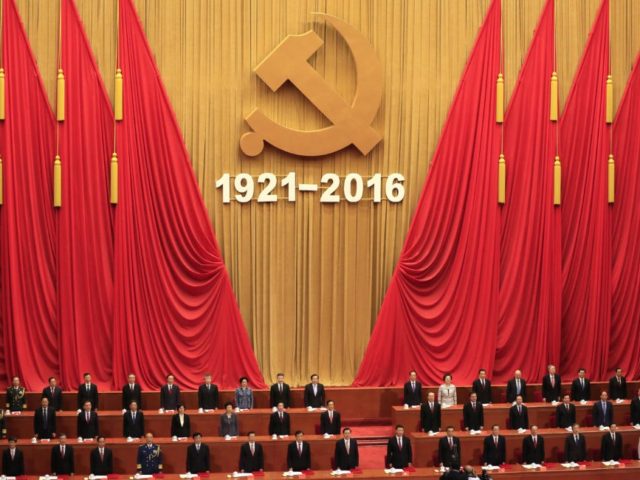In his preface to the Country Reports on Human Rights Practices for 2016 Secretary of State Rex Tillerson said the United States is committed to guaranteeing human rights around the globe.
“The production of these reports underscores our commitment to freedom, democracy, and the human rights guaranteed to all individuals around the world,” Tillerson said.
With Chinese President Xi Jinping visiting President Donald Trump’s “winter White House” in Florida on Thursday and Friday, the country’s abysmal human rights record should be a priority in this historic meeting, China observers say.
“Torture, disappearances, imprisoning peaceful advocates, destroying religious communities, internet censorship – President Xi has plenty to answer for on these subjects,” said Sophie Richardson, China director at Human Rights Watch. “But will he be asked – and asked to change course?”
“No doubt President Xi will offer soothing words about China’s role in the world,” Richardson said. “But no one should be fooled by a man and a government who preside through brutality and repression. Xi’s record speaks for itself.”
And despite China touting the change from a “one-child” to “two-child” policy, forced abortions are still used for population control and male-preferred births, Lifenews reported.
Rep. Chris Smith (R-NJ), chairman of the House Africa, Global Health, Global Human Rights and International Organization Subcommittee, wrote about the abuses earlier this year:
In October of last year the BBC released a report entitled “China’s Forbidden Babies Still An Issue” confirming that under the “Two-Child Policy,” forced abortion remains a threat for women pregnant with a third child.
BBC’s Beijing Correspondent John Sudworth interviewed the father of a family in hiding because his wife has just given birth to their third child. The father told Sudworth,
“A third baby is not allowed. If we weren’t in hiding, they would have forced us to have an abortion.”
China’s Family Planning officials readily admit to Sudworth that all women of childbearing age are still required to report for up to two ultrasound examinations every year.
They freely discuss with Sudworth the massive “social compensation” fines levied on families that have a third child—up to ten times the annual average income.
They also admit that that any woman found to be pregnant with a third baby will receive “home visits” with the aim of “persuading” them to have abortions.
Said one official ominously: “If you’re reported to us, then we’ll find you and we’ll persuade you not to give birth to that baby.” Another said more bluntly, “We’ll definitely find you and persuade you to do an abortion.”
In its executive summary, State lays out a wide range of human rights abuses in China:
As in previous years, citizens did not have the right to choose their government and elections were restricted to the lowest local levels of governance. Authorities prevented independent candidates from running in those elections, such as delegates to local people’s congresses. Citizens had limited forms of redress against official abuse. Other serious human rights abuses included arbitrary or unlawful deprivation of life, executions without due process, illegal detentions at unofficial holding facilities known as “black jails,” torture and coerced confessions of prisoners, and detention and harassment of journalists, lawyers, writers, bloggers, dissidents, petitioners, and others whose actions the authorities deemed unacceptable.
Other highlights of the lengthy report include that at the end of 2016, 16 of the 300 human rights lawyers rounded up and imprisoned by the Chinese government remained in custody.
Former prisoners and detainees “reported they were beaten, subjected to electric shock, forced to sit on stools for hours on end, hung by the wrists, raped, deprived of sleep, force-fed, and otherwise subjected to physical and psychological abuse,” with political and religious dissidents receiving the harshest treatment.
The Communist government also regularly spies on its citizens, including monitoring phone calls, text messages, faxes and other forms of communications.
The government routinely denies holding political prisoners, but, according to State, “tens of thousands of political prisoners remained incarcerated, most in prisons and some in administrative detention” and “the government did not grant international humanitarian organizations access to political prisoners.”

COMMENTS
Please let us know if you're having issues with commenting.